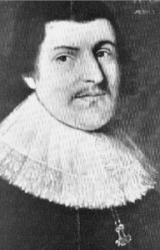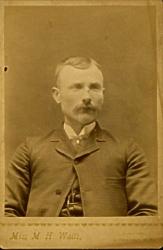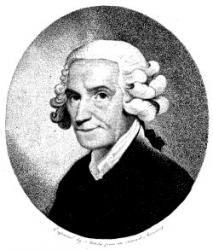Planning worship?
Check out our sister site, ZeteoSearch.org,
for 20+ additional resources related to your search.
- |
User Links
Person Results
John Randall
1717 - 1799 Person Name: J. Randall Composer of "[O come let us sing unto the Lord]" in Church Hymns and Tunes
John Randall
Richard Woodward
1743 - 1777 Person Name: R. Woodward Composer of "[O come let us sing unto the Lord]" in Church Hymns and Tunes Woodward, Richard, jr; b. 1743?; d. Dublin, 22 Nov. 1777; Anglo-Irish organist and composer
LOC Name Authority File
Richard Woodward
William H. Walter
1825 - 1893 Person Name: W. H. Walter Composer of "[O come, let us sing unto the Lord]" in The Hymnal of the Protestant Episcopal Church in the United States of America 1940
William H. Walter
Henry Lawes

1596 - 1662 Composer of "O COME LET US SING" in Services for Congregational Worship. The New Hymn and Tune Book Born: January 5, 1596, Dinton, Wiltshire, England.
Died: October 21, 1662, London, England.
Buried: In the cloisters of Westminster Abbey, London, England.
Lawes, tutor to the daughters of the Earl of Bridgewater, is best known as a composer. He became a Gentleman of the Chapel Royal in 1626, and a member of the "King’s Musick" in 1631. He wrote over 400 vocal pieces, as well as anthems and instrumental compositions. His works include:
Choice Psalmes Put into Musick for Three Voices, 1648
Ayres and Dialogues (London: 1653)
Sources:
Frost, p. 680
Hughes, pp. 467-68
Nutter, p. 460
Stulken, p. 292
--www.hymntime.com/tch
Henry Lawes
William Crotch

1775 - 1847 Person Name: W. Crotch Composer of "[O come let us sing unto the Lord] (Crotch 2)" in The Church Hymnal William Crotch (5 July 1775 – 29 December 1847) was an English composer, organist and artist.
Born in Norwich, Norfolk to a master carpenter he showed early musical talent as a child prodigy. The three and a half year old Master William Crotch was taken to London by his ambitious mother, where he not only played on the organ of the Chapel Royal in St James's Palace, but for King George III. The London Magazine of April 1779 records:
He appears to be fondest of solemn tunes and church musick, particularly the 104th Psalm. As soon as he has finished a regular tune, or part of a tune, or played some little fancy notes of his own, he stops, and has some of the pranks of a wanton boy; some of the company then generally give him a cake, an apple, or an orange, to induce him to play again...
Crotch was later to observe that this experience led him to become a rather spoiled child, excessively indulged so that he would perform.
He was for a time organist at Christ Church, Oxford, from which he was later to graduate with a Bachelor of Music degree.
His composition The Captivity of Judah was played at Trinity Hall, Cambridge, on 4 June 1789; his most successful composition in adulthood was the oratorio Palestine (1812). He may have composed the Westminster Chimes in 1793.
In 1797 Crotch was given a professorship at Oxford University, and in 1799 he acquired a doctorate in music. While at Oxford, he became acquainted with the musician and artist John Malchair, and took up sketching. He followed Malchair's style in recording the exact time and date of each of his pictures, and when he met John Constable in London in 1805, he passed the habit along to the more famous artist.
In 1834, to commemorate the installation of the Duke of Wellington as chancellor of the University of Oxford, Crotch penned a second oratorio titled The Captivity of Judah. The 1834 work bears little resemblance to the oratorio he wrote as a child in 1789.
In 1822, Crotch was appointed to the Royal Academy of Music as its first Principal, but resigned ten years later.[2] He spent his last years at his son's house in Taunton, Somerset, where he died suddenly in 1847. Among his notable pupils were William Sterndale Bennett, Lucy Anderson, Stephen Codman, George Job Elvey, Cipriani Potter, and Charles Kensington Salaman
--en.wikipedia.org/
William Crotch
John S. Norris

1844 - 1907 Person Name: John Norris Composer of "[O come let us sing unto the Lord]" in Church Hymns and Tunes Rv John Samuel Norris United Kingdom/USA 1844-1907. Born at West Cowes, Isle of Wight, UK, he emigrated to the US when young and attended school in Canada. He was ordained a Methodist minister in Oshawa, ON, in 1868. Over the next decade he pastored at churches in Canada, NY, and WI. He switched to the Congregationalist denomination in 1878, serving churches in Mondovi, Shullsburg, and Hixton, WI, and Grand Rapids, MI. From 1882 -1901 he held pastorates at Ames, Webster City, Parkersburg, Peterson, and Tripoli, IA.. He died in Chicago, IL.
John Perry
John S. Norris
Richard Goodson
1655 - 1718 Person Name: Richard Goodson (1655-1718) Composer of "[O come, let us sing unto the Lord]" in The Hymnbook
Richard Goodson
William Russell
1777 - 1813 Composer of "VENITE, EXULTEMUS DOMINO (Russell)" in The Hymnal
William Russell
James Nares

1715 - 1783 Person Name: Dr. J. Nares, 1715-1783 Composer of "VENITE, EXULTEMUS DOMINO" in Methodist Hymn and Tune Book Born: April 19, 1715, Stanwell, Middlesex, England.
Died: February 10, 1783.
Buried: St. Margaret’s, Westminster, England.
After his family moved to Oxford, Nares became a chorister in the Chapel Royal. He later became deputy organist at St. George’s Chapel, Windsor; organist in York Cathedral (1734); and organist in the Royal Chapel and composer to the king (1756). He received a doctorate of music degree from Cambridge University in 1756. In 1770, the Catch Club awarded him a prize for his glee To All Lovers of Harmony.
Sources:
Frost, p. 683
Nutter, p. 462
http://www.hymntime.com/tch/bio/n/a/r/nares_j.htm
====================
http://en.wikipedia.org/wiki/James_Nares
James Nares
Philip Humphreys
b. 1935 Person Name: P. Humphrey Composer of "[O come, let us sing unto the Lord; let us heartily rejoice in the strength of our salvation]" in Common Praise
Philip Humphreys


 My Starred Hymns
My Starred Hymns


